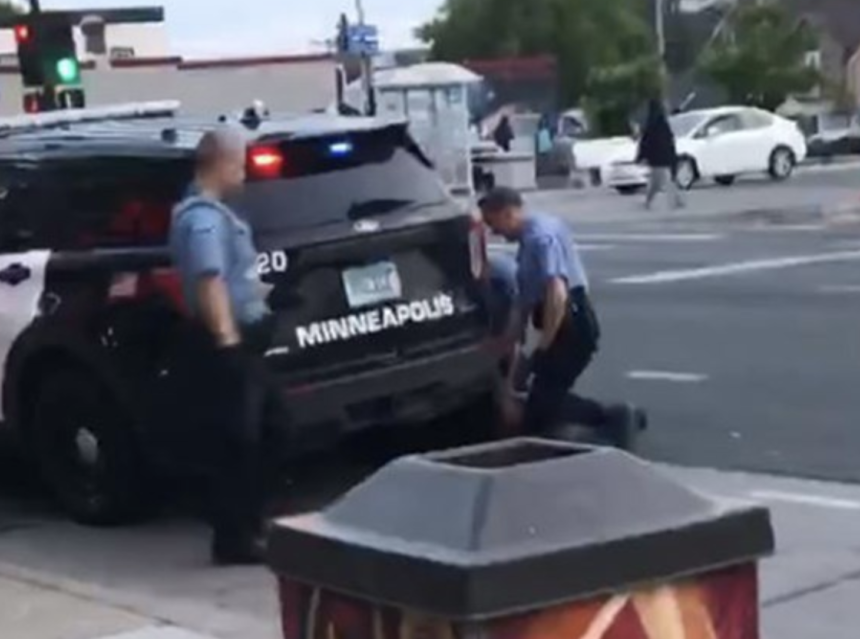Man dies after video shows officer kneeling on neck

MINNEAPOLIS (AP) — A black man has died in Minneapolis police custody after video shared online from a bystander showed a white officer kneeling on his neck during his arrest as he pleaded that he couldn’t breathe.
His death, which occurred Monday night after a struggle with police officers, was under investigation by the FBI and state agents. Minneapolis Police Chief Medaria Arradondo, speaking to reporters Tuesday morning, was asked about the use of the knee on the man’s neck during the arrest.
“We clearly have policies in place regarding placing someone under control,” Arradondo said, stating that taking a look at what happened and how those policies apply “will be part of the full investigation we’ll do internally.”
Officers were called about 8 p.m. Monday to investigate a report of a forgery at a business, according to police spokesman John Elder. Police found the man, believed to be in his 40s, matching the suspect’s description in his car.
“He was ordered to step from his car. After he got out, he physically resisted officers,” Elder said in a statement. “Officers were able to get the suspect into handcuffs and noted he appeared to be suffering medical distress.”
The man, who was not identified, was taken by ambulance to Hennepin County Medical Center where he died a short time later, police said. The name of the officer seen kneeling on his neck wasn’t immediately released.
The Minnesota Bureau of Criminal Apprehension has joined the FBI in its investigation. All body camera footage has been turned over to the BCA, which investigates most police shootings and in-custody deaths. The officers involved have been put on paid administrative leave, per department protocol.
Nekima Levy-Armstrong, a prominent local activist, said watching the footage that was shared on social media made her “sick to her stomach” and she said it’s another example of police brutality toward African American men, the Star Tribune reported.
“Whatever the man may have done should not have ended in a death sentence,” she said. “What started as an alleged economic incident once again turned deadly for a black man.”
Levy-Armstrong said it reminded her of the Eric Garner case. He was an unarmed New York man who died in 2014 after he was placed in a chokehold by police and pleaded for his life saying he couldn’t breathe. A grand jury later decided against indicting the officers involved, sparking protests around the country.
Minneapolis Mayor Jacob Frey on Tuesday morning urged those who might protest to take precautions amid the coronavirus outbreak. He said there is a “need to make sure everyone voicing their opinion is staying safe,” and he asked potential protesters to practice social distancing.
“If you’re sad, I get it, if you’re angry, that makes complete sense, if you feel the need to protest, of course, we want to make sure people are able to express themselves,” Frey said. “There is another danger out there right now, which is COVID-19.”
Police in Minneapolis have come under scrutiny in recent years for deadly run-ins with citizens. A 24-year-old black man, Jamar Clark, was shot in the head and died in 2015 after a confrontation with two white officers responding to a reported assault. A county prosecutor declined to prosecute the officers, saying Clark was struggling for one of the officers’ gun when he was shot.
A white woman, Justine Rusczcyk Damond, died in 2017 when she was shot in the stomach by a Minneapolis officer responding to her 911 call. That officer, who is black, was convicted of manslaughter and murder and is serving a 12-year prison sentence.